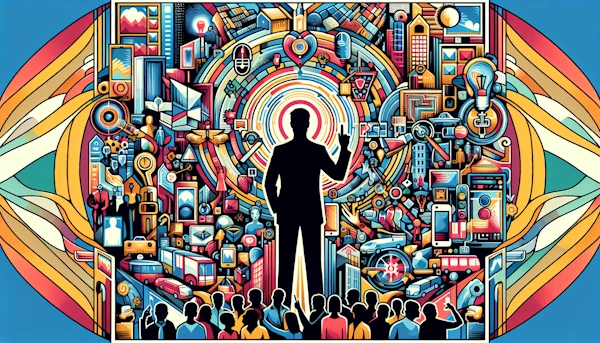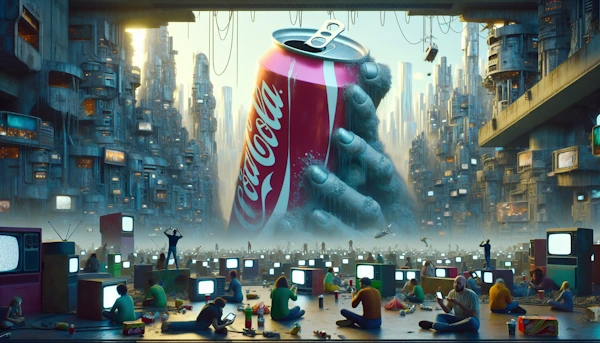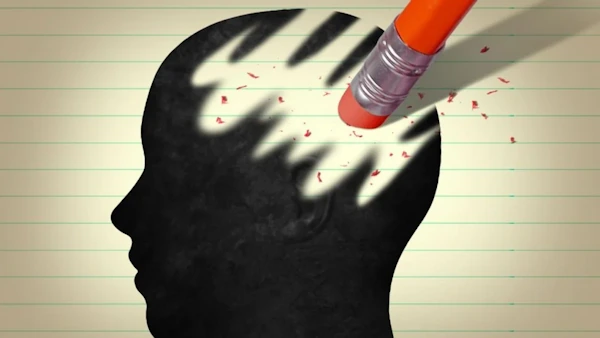In the panorama of cinematic satire, few films have managed to blend comedy with a scathing critique of societal downfall as deftly as “Idiocracy”. This movie, under the guise of humor, projects a dystopian future where intelligence is not just undervalued but has become rare, painting a civilization crippled by its own anti-intellectualism and consumerist indulgence. The Idiocracy movie meaning transcends mere entertainment, serving as a prophetic warning about the perils of succumbing to the allure of convenience, corporate influence, and the abandonment of critical thought. It compels viewers to reflect on the trajectory of human evolution, intellectual decline, and the cultural patterns that might lead to such a degraded state of society.

The subsequent sections will delve into understanding the Idiocracy movie meaning beyond its laughter-inducing surface, exploring the satirical genius of Mike Judge, the creator who masters the art of embedding profound social critique within his works. This analysis will examine the eerie parallels between the movie’s speculative depiction of the future and the tangible elements of idiocracy coming true in today’s world. By dissecting why “Idiocracy” matters more than ever, the discussion will navigate through the realms of advertising, technology, pop culture, and the overarching influence of media on societal values and behavior, highlighting a compelling, albeit sarcastic, commentary on human regression and the thinning line between satire and reality.
Understanding ‘Idiocracy’: Beyond the Laughs
In the realm of cinematic expressions that mirror societal apprehensions, “Idiocracy” stands as a beacon of satirical brilliance, unfurling a narrative that is as humorous as it is harrowingly reflective of a potential future. Directed by Mike Judge, the film embarks on a journey through a dystopian society, a narrative arc that serves as a profound critique of contemporary cultural and social decay. The film’s cleverly crafted screenplay and skillful direction present a thought-provoking exploration of the consequences of intellectual decline and the erosion of critical thinking in society. The film’s witty dialogue and cleverly constructed scenes effectively highlight the dangers of a society that values entertainment over education, where intelligence is ridiculed and ignorance is celebrated. The satirical brilliance of Idiocracy lies in its ability to use humor to shed light on the very real issues that plague our world today. By exaggerating the most problematic aspects of contemporary culture and projecting them into the future, the film functions as a cautionary tale, urging reflection on the trajectory we are on and the potential consequences of our actions.
The dystopian society depicted in “Idiocracy” is not so far-fetched, as it draws upon the seeds of truth that exist in our present reality. The film’s narrative arc is a wake-up call, reminding us of the importance of critical thinking, intellectual curiosity, and the pursuit of knowledge. “Idiocracy” challenges us to question the values and priorities of our society, encouraging us to strive for a future where intelligence and reason prevail over ignorance and apathy. In conclusion, “Idiocracy” is a cinematic masterpiece that uses satire and humor to shine a light on the pressing issues of our time, reminding us of the power of critical thinking and the need to safeguard our intellectual capacities.
Overview of ‘Idiocracy’ Plot and Premise
In 2005, the U.S. military selects archivist Joe and prostitute Rita for a year-long hibernation experiment. Following the incarceration of the project leader, the capsules containing the two protagonists are forgotten, thus remaining abandoned for 500 long years.
In 2505, due to the drastic decline in average IQ due to the increased ease of procreation by the dumbest individuals, the Earth has plunged into utter disaster, prey of a scientific and environmental crisis and overwhelmed by mountains of undisposed waste. It is precisely a landslide from one of these mountains that causes the opening of the capsules containing Joe and Rita.
The two thus find themselves without reference points in an age populated by idiots, victims moreover of mockery and suspicion by their neighbors for their archaic language. Joe’s adventures, ranging from a comical escape out of prison to his unwitting rise to a position of power within the government, underlines the absurdity of the world in which he now lives. Tasked with addressing a national crisis caused by elementary errors in farming practices, his common-sense solutions are met with resistance and disbelief, painting a stark picture of a society that has lost the most basic knowledge and reasoning skills.
Initial Reception and its Growth Into a Cult Classic
Upon its release in 2006, “Idiocracy” did not immediately capture the attention of the masses, with its distribution and promotion seemingly undercut by its own distributor, 20th Century Fox. This lack of initial fanfare, however, did not deter the film from eventually garnering a dedicated following, elevating it to the status of a cult classic. Critics and viewers alike have come to appreciate the film’s ingenious blend of humor and dystopian foresight, recognizing it as a poignant commentary on the trajectory of human intelligence and societal values. Its portrayal of a future society enthralled by mediocrity and anti-intellectualism resonates with audiences, prompting reflections on the parallels between the film’s speculative world and the current societal landscape.
“Idiocracy” transcends the boundaries of mere entertainment, offering a critical, albeit sarcastically tinted, lens through which to examine the cultural and social decay permeating modern society. It serves as a cautionary tale, urging viewers to confront the consequences of valuing convenience and entertainment over intellect and critical thinking. Through its depiction of a world where intelligence is derided and simplicity reigns supreme, the film challenges its audience to reflect on the importance of nurturing intellect and wisdom to avoid a descent into the kind of dystopia it so vividly portrays.
The Satirical Genius of Mike Judge
Mike Judge’s Career and Comedic Style
Mike Judge, a prominent figure in the realm of animation and comedy, has made a significant impact on the history of entertainment through his distinctive satirical style. Judge was born in Ecuador and raised in New Mexico. His transition from a physics student at the University of California, San Diego, to a prominent figure in the realm of satire is a testament to his versatility and ingenuity. His inaugural foray into animation commenced with the cult classic “Beavis and Butt-Head”, which not only exemplified his aptitude for voice and character animation but also established a novel benchmark for adult humor on television.
Judge’s work extends beyond mere comedy; it serves as a critique of societal norms and behaviors. His creations, including “King of the Hill” and “Silicon Valley”, reflect a deep understanding of American culture and its various subcultures, from suburban Texas to the tech frenzy of Northern California. Each series highlights Judge’s capacity to blend humor with sharp societal observations, making him a unique voice in critiquing and caricaturing contemporary life.
Comparison with Other Works by Mike Judge
Exploring Judge’s body of work reveals a consistent thread of satirical genius that critiques societal complacency and intellectual stagnation. “Idiocracy”, perhaps his most pointed social commentary, aligns closely with his other works in its satirical approach but stands out for its dystopian vision. Unlike “Silicon Valley”, which skewers the tech industry through situational comedy and character-driven narratives, “Idiocracy” presents a broader, more scathing critique of societal decline.
In “Idiocracy”, Judge extrapolates current trends towards anti-intellectualism and media saturation to imagine a future where human intelligence has dramatically declined. This theme of societal decay is echoed in his other works, albeit in more localized settings. For instance, “King of the Hill” subtly mocks suburban American life and its peculiarities, while “Silicon Valley” addresses the absurdities of the tech world with a similar blend of humor and criticism.
Judge’s ability to satirize across different domains—be it small-town America or futuristic dystopias—demonstrates his adeptness at using comedy to reflect on and critique cultural and social decay. His work invites viewers to question the path society is on, making his contributions invaluable in the landscape of American satire.
Reality Reflecting Art: Parallels Between ‘Idiocracy’ and Today’s World
Consumerism and Corporate Influence

In the satirical film “Idiocracy”, the narrative explores a dystopian future where society’s surrender to consumerism reaches its lowest point. One of the most striking examples is when a sports drink replaces water for crop irrigation, resulting in widespread environmental degradation. Although this scenario may seem exaggerated, it serves as a cautionary tale, reflecting the real-world consequences of unbridled corporate greed and rampant consumerism. Today, we face similar threats to our ecosystems due to overconsumption and pollution. The absurdities depicted in the movie, such as the excessive use of plastic and unsustainable practices, resonate with the challenges we currently encounter. “Idiocracy” serves as a stark reminder of the potential ramifications if we continue to prioritize corporate profits over environmental stewardship. It urges us to reflect on the urgent need for sustainable practices and responsible consumption to safeguard our planet’s future.
Anti-intellectualism and the Decline of Critical Thinking
The film satirizes a future where intellectual endeavors are scorned, and the populace shows a marked decline in cognitive abilities. This dystopian vision finds uncomfortable parallels in the present reality, where critical thinking and intellectual rigor are often overshadowed by the allure of sensationalism and superficial content. Platforms like social media contribute to this trend, bombarding users with content that favors immediacy over depth, thus fostering a culture that undervalues intellectual engagement. The rise of “fake intellectualism” further complicates the landscape, as individuals brandish unearned expertise, diluting meaningful discourse and contributing to a societal shift away from valuing true knowledge and wisdom.
Media and Entertainment Simplification
The film “Idiocracy” also critiques the oversimplification of media and entertainment, exemplified by a populace that is engrossed in the lowest common denominator of cultural production. In the contemporary era, reality television and viral online content frequently reflect the film’s portrayal of entertainment designed to appeal to the basest instincts. The prevalence of such content, which often lacks substantial value, can be regarded as an indication of a declining public appetite for complexity and nuance in media. This trend toward simplification not only diminishes the quality of entertainment but also impacts the collective cognitive engagement, steering public focus away from pressing societal issues and towards trivialities.
Why ‘Idiocracy’ Matters More Than Ever
In an era where the line between satire and reality blurs with unsettling frequency, “Idiocracy” emerges not just as a comedic escape but as a prescient mirror reflecting the cultural and social decay of our times. This cinematic venture, once perceived as an exaggerated farce, now feels eerily prophetic, urging a deeper examination of its implications and the importance of satire in societal critique. “Idiocracy” serves as a cautionary tale, highlighting the potential consequences of a society that values entertainment and instant gratification over critical thinking and intellectual pursuits. The film presents a dystopian future where intelligence is ridiculed and ignorance reigns supreme. This chilling reflection of the dangers that lie in the erosion of intellectual discourse and the devaluation of knowledge is a cautionary tale that should be taken seriously. The film’s satirical elements, though exaggerated, resonate with the absurdities and contradictions present in our own society. By accentuating these deficiencies, “Idiocracy” prompts us to reflect on the consequences of our actions and the trajectory of our society. The film serves as a wake-up call, reminding us of the importance of critical thinking, intellectual curiosity, and the necessity to challenge the status quo.
As we witness the increasing prevalence of anti-intellectualism and the erosion of civil discourse, “Idiocracy” serves as a timely reminder of the dangers of complacency and the necessity of active engagement in shaping a better future. It invites us to question the values and priorities of our society, encouraging us to strive for a more informed, thoughtful, and compassionate world. In this sense, “Idiocracy” transcends its role as a mere comedy and becomes a powerful tool for social commentary and introspection. It compels us to confront uncomfortable truths and confront the consequences of our collective choices. As we navigate an increasingly complex and interconnected world, “Idiocracy” reminds us that the power of satire lies not only in its ability to entertain but also in its capacity to provoke thought, inspire change, and hold a mirror up to society.
The Importance of Satire in Societal Critique
In its most potent form, satire serves as a society’s scalpel, dissecting the absurdities of our world with precision and inviting reflection. The film Idiocracy employs this tool with considerable skill, presenting a future in which intellectual apathy and mediocrity prevail. The film’s exaggerated portrayal of a society that has become intellectually and morally apathetic serves to highlight the potentially dangerous consequences of prioritizing entertainment and convenience over wisdom and discernment. The laughter it provokes is accompanied by a sense of unease, as viewers identify parallels between the film’s dystopian vision and aspects of the present. It underscores the erosion of critical thinking and intellectual curiosity, catalyzed by a relentless barrage of mindless media and a culture that celebrates ignorance over enlightenment.
The film’s satirical lens magnifies the perils of a society entranced by the superficial, where meaningful discourse is drowned out by the cacophony of triviality. It serves as a clarion call, urging a collective awakening to the creeping intellectual decline that threatens to morph satire into reality. In doing so, “Idiocracy” champions the role of satire not just as a source of humor, but as a vital form of social commentary, challenging us to confront uncomfortable truths about our cultural and intellectual trajectory.
Implications of Ignoring the Film’s Warnings
Ignoring the cautionary tale woven into the fabric of “Idiocracy” risks paving the way for the film’s fictional future to take root in reality. The implications of such negligence are far-reaching, touching every facet of society from governance to education, media, and beyond. As the film illustrates, a world bereft of critical thought and intellectual vigor is a breeding ground for mediocrity, where the vital institutions that underpin democracy and progress crumble under the weight of ignorance and apathy.
The erosion of trust in these institutions, exacerbated by the polarizing echo chambers of social media, heralds a society increasingly fragmented and susceptible to manipulation. This fragmentation not only stifles intellectual growth but also endangers the very foundations of democratic societies, which thrive on informed debate and shared values. The film’s portrayal of a populace disengaged from the complexities of the world around them serves as a stark warning against complacency in the face of societal and cultural decay.
In a world where reality TV stars ascend to positions of power and sensationalism trumps substance, the parallels drawn by “Idiocracy” are uncomfortably close to the bone. It underscores the urgency of fostering a culture that prizes intellectual curiosity, critical thinking, and meaningful engagement over passive consumption and instant gratification. The film’s satirical warning is clear: without a concerted effort to reverse the tide of intellectual decline and cultural shallowness, the dystopian future it depicts could well become our own.

In summary, “Idiocracy” matters more than ever as a critical and ironic examination of our societal trajectory. It serves as a satirical beacon, illuminating the path we tread towards potential intellectual and cultural impoverishment. By heeding its warnings and embracing the importance of satire in societal critique, there lies hope in steering the course away from idiocracy towards a future enriched by wisdom, discernment, and a renewed commitment to intellectual and cultural growth.
Conclusion
Reflecting upon “Idiocracy” serves as an intellectual exercise in diagnosing the gradual embrace of mediocrity and superficiality that plagues our existence. This cinematic mirror, through its comedic yet disturbing narrative, underscores the spiraling downslide into a societal quagmire, where simplicity trumps complexity and the profound is overshadowed by the banal. It nudges us, with scathing irony and critical scrutiny, towards recognizing our current trajectory that, if unaltered, might not be too distant from the farcical future Judge envisions. Our cultural landscape, increasingly characterized by a voracious appetite for triviality, risks becoming fertile ground for the seeds of intellectual desolation and cultural sterility, as depicted in the movie.
In essence, “Idiocracy” transcends its initial perception as a mere work of satire, evolving into a critical beacon of warning against the perils of intellectual apathy and cultural vacuousness. By intertwining sarcasm with a cogent critique of the modern zeitgeist, it implores us to reevaluate the values we champion and the intellectual paths we tread. Embracing the message embedded within Judge’s dark comedy implies fostering a culture where intellect and wisdom are revered, lest we inadvertently find ourselves mirroring the dystopian absurdity it portrays. This cinematic jest, then, becomes an ironic testament to the potential reality awaiting us, should we choose to ignore the cautionary tale it so vividly paints.
Do you also feel that modern society is becoming too superficial and mindless? This might be a good sign, for as Krishnamurti said: <<It is no measure of health to be well adjusted to a profoundly sick society>>. So why don’t you try our personality tests created especially for people like you who are sensitive and curious?
TAKE THE AWARENESS TEST
TAKE THE WISDOM TEST
TAKE THE IQ TEST
MINI SELF-ASSESSMENT TEST: ARE YOU A FRIVOLOUS/SUPERFICIAL PERSON?
Read the sentences below and select the ones you agree with and that you think make the most sense.
Count the number of boxes checked and read the corresponding profile.
0: You are not superficial at all
1-2: You are frivolous from time to time
3-4: You tend to be superficial
5-6: You are very frivolous and superficial
MINI SELF-EVALUATION TEST: ARE YOU A NAIVE PERSON?
Read the sentences below and select the ones you agree with and that you think make the most sense.
Count the number of boxes checked and read the corresponding profile.
0: You are not naive at all
1-2: You are a little bit naive
3-4: You are quite naive
5-6: You are terribly naive
